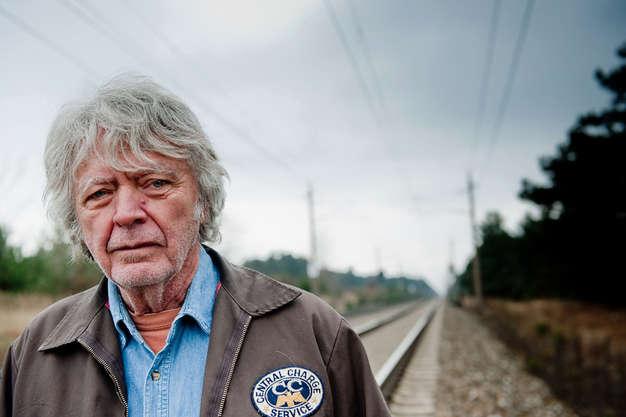James Benning
Born in Milwaukee in 1945. Studied mathematics, then film and graphic arts at the University of Wisconsin. From 1972 he worked as an independent filmmaker and made a significant contribution to the American avant-garde. Between 1978 and 1985 he also created a series of projection and computer installations. Since 1987 Benning has taught in the video department at the California Institute of the Arts. One of his seminars is entitled "Mathematics for Filmmakers".
Benning also shows a growing interest in history's slow work of destruction on our social and physical space - especially the debilitating aspects of racism, a subject that is also an intimate part of his story, as he grew up in a white working-class neighbourhood that gradually saw more and more black people move in.
A shot from a Benning film is likely to impress you first with its formal beauty and its capacity to evoke the most passionate and also trivial nostalgia for industrial waste of one kind or another. The fact that these two qualities diverge rather than mesh produces an unsettling sense of absence, familiar from the paintings of Edward Hopper or the films of Antonioni, a sense of endless waiting and boundless longing that haunts these landscapes like a ghost.
Program
El Valley Centro (USA 1999, colour, 90 Min.)
Landscape Suicide (USA 1986, colour, 90 Min.)
One Way Boogie Woogie (USA 1977, colour, 60 Min.)
11 x 14 (USA 1976, colour, 83 Min.)
Chicago Loop (USA 1976, colour, 3 Min.)
United States of America (USA 1975, colour, 25 Min.)
9/1/75 (USA 1975, colour, 22 Min.)
O Panama (USA 1985, colour, 28 Min.)
Deseret (USA 1995, colour, 84 MIn.)
American Dreams (USA 1983, colour, 16mm, 58 Min.)
for more information see downloads
Ein gemeinsames Programm von sixpackfilm und Stadtkino
Redaktion Brigitta Burger-Utzer
© image Natascha Unkart

